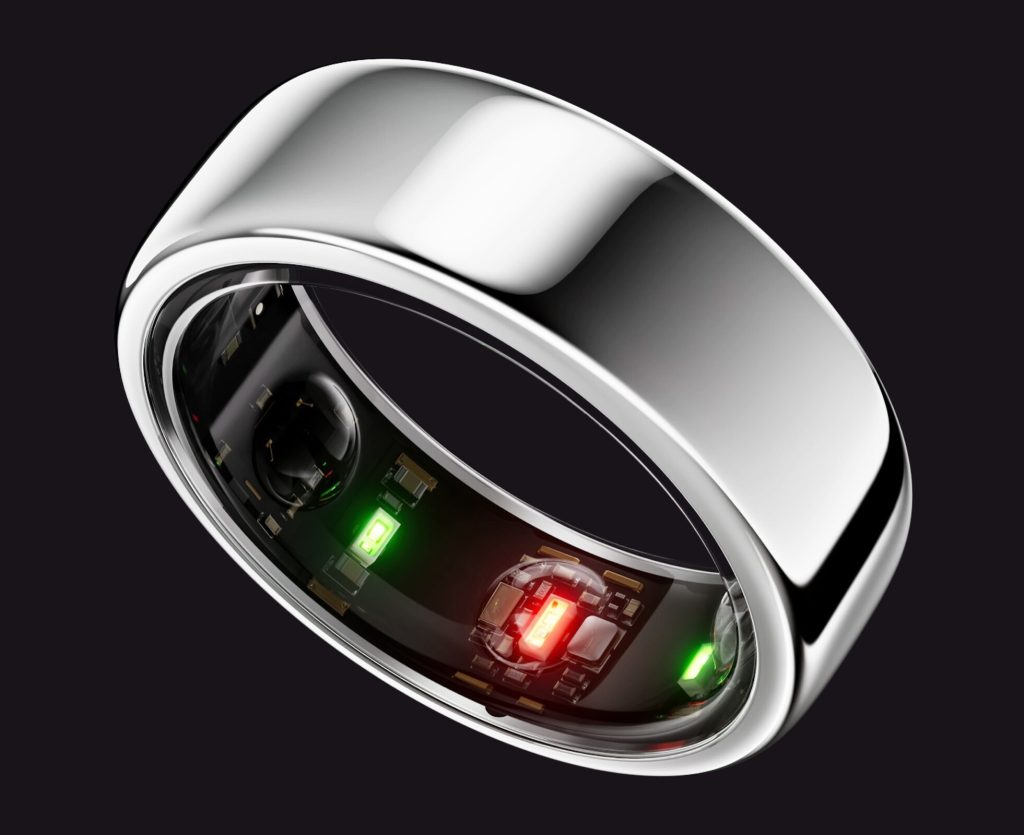I am knee deep in a review for the Oura ring, and there is one clear takeaway after using it for nearly a month: this is the future of wearable technology.
At least, the near future of wearable technology. I’m sure we’ll be tattooing health trackers onto our skins at some point. For now, though, a low-profile, yet highly accomplished, smart ring is the easiest way to get regular, accurate recordings of your vital statistics.
In fact, Oura has done such a fine job that Samsung is now entering the smart ring arena with its new “Galaxy ring” that it teased at this month’s Galaxy S24 launch event. A tech giant entering the market means two things: cheaper devices and new features.
We only know a bit about the new ring. Mostly that it’s light, slim and well designed, according to an analyst who got a sneak peak. Speaking to The Verge, a Samsung spokesman said that the new wearable will have “leading sensor technologies” and that it would be comfortable enough to wear 24/7.
Being comfortable to wear all the time is a given. But it’s also an indirect comment on the current crop of smartwatches that simply aren’t comfortable to wear around the clock. I’m a big fan of Samsung’s Galaxy Watch 6, and before that the Watch 5 Pro, but sleeping with either on feels unnatural. There’s also the added problem of looking at a screen right before bed, which experts say is bad for sleep hygiene.
Google’s second generation Nest Hub found a way around uncomfortable wearables by monitoring your breathing and movement as you sleep via low-power radar sensors. A smart solution that is, unfortunately, a bit creepy. Also, I was never convinced by its accuracy.
The Oura ring, and the very concept of smart jewelery, is the superior alternative. There’s no screen that interrupts your sleep hygiene, you don’t feel it on your body, it has elite sleep tracking and the battery lasts longer than a smartwatch. The Oura ring is reasonably priced at $299, especially up against other wearables. But there’s room for that price to drop with some competition.
This is where Samsung will make a serious dent in the market. The company is hyper aggressive about pricing. People who pre-ordered the Galaxy S24 also got a free Galaxy Watch 6 for a limited time. Right now the company is running a 15% off promotion on the Watch 6 range, and it has a perpetual 5% discount if you buy any of its products through the Samsung Shopping app.
The company will also take in your old wearables for a discount on its new tech, often inflating those trade-in prices around a product launch. All of these deals and discounts will pop up repeatedly throughout the year. I wouldn’t be surprised if the new Ring launches with a series of money-off deals, or it gets bundled in with the Galaxy Fold 6 when it lands this summer.
If Samsung keeps all of the health tracking features free instead of hiding some of it behind a subscription tier like the Oura Ring does, then we’ll get a good idea of just how aggressive the Korean company wants to be with this new product range.
There’s also the prospect of Samsung’s new generative AI tech. What does AI look like in a smart ring? Perhaps I can explain, in full sentences, how I felt I slept throughout the night and the AI uses that—alongside the data from the ring—to create a more accurate picture of my evening’s slumber.
Or maybe I can explain what I was actually doing when the ring automatically detected stress and exercise, therefore accurately categorizing it. So jogging for the bus or a moment of stress has some context.
The unknown quantity of how Samsung will deploy AI in the Galaxy Ring is the most intriguing part of the new device. The high likelihood of aggressive pricing also will make the wearable accessible. But, most importantly, the competition will follow suit and the smart ring market will grow very quickly over the next two years, which is only good news for consumers.
© Forbes
